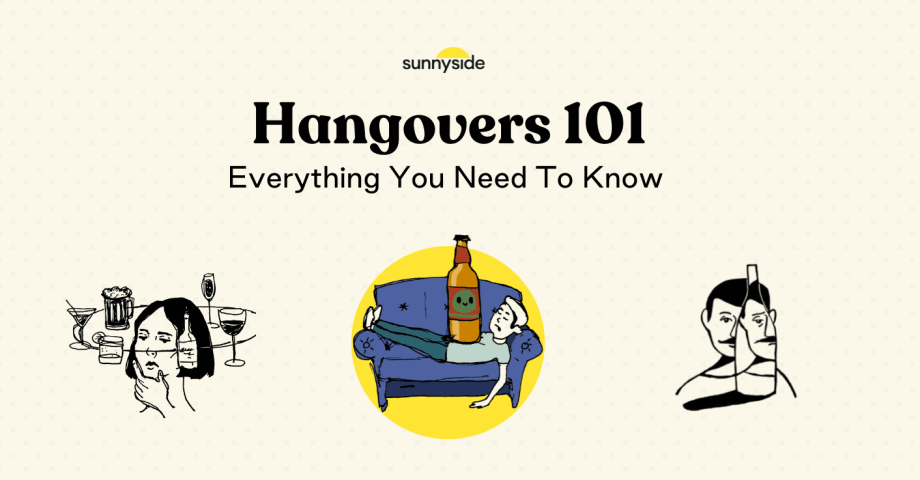Last Updated on May 15, 2023
You had a bit too much last night, and now, you’re nursing a splitting headache.
A hangover is inarguably a drinker’s worst enemy. And while it is one of the most common outcomes of drinking alcohol, this topic remains shrouded in a vast amount of misinformation.
With a quick Google search, you’ll find countless hangover cures, many of which aren’t backed by science. Some of these traditional remedies are also pretty unique—such as eating pickled sheep eyeballs in tomato juice or drinking rabbit dung tea. You may have even heard of rubbing a slice of lemon or lime under your armpits before a night of drinking to prevent a hangover. And, of course, we can’t forget the infamous ‘hair of the dog,’ which beckons you to drink even more alcohol to get rid of hangover symptoms.
However, the truth is that many of these “hangover remedies” aren’t effective. In this guide, we’ll explore what causes hangovers to happen and different methods for preventing hangovers that actually work. We’ve also included some ways to manage and treat a hangover and its associated symptoms.
Part 1: Understanding Hangovers and Why They Happen
What Is a Hangover?
According to the National Institute on Alcohol Abuse and Alcoholism (NIAAA), a hangover refers to a group of unpleasant symptoms that appear after you drink too much alcohol. Some of the most common hangover symptoms you may notice include nausea, headaches, and fatigue [1].
There’s no guideline or magic formula that tells you how much alcohol you can safely consume without putting yourself at risk of a hangover.
Research has also shown that the amount of alcohol you drink does not accurately predict how severe your hangover will be. Instead, how much alcohol you drink compared to what you would normally consume, is a more accurate way to predict how bad your hangover will be [2].
In other words, if you typically consume 2 drinks in a given evening, but the next time you consume 4, the chances of you experiencing stronger hangover symptoms likely increases. This also means that light or moderate drinking—and not just heavy drinking—can cause hangovers [2].
Why do Hangovers Happen?
Research has suggested several possible explanations as to how hangovers occur.
Firstly, alcohol and its metabolites may contribute to hangover symptoms. Some research has proposed that these compounds may interfere with the natural processes that happen in your body, leading to low blood sugar levels, dehydration, and an imbalance of electrolytes. Cumulatively, these changes may bring about typical hangover symptoms [3].
Another proposed mechanism involves your immune system. Some studies suggest that your body’s immune system reaction and inflammatory response to alcohol may play a role in the development of hangovers [4].
Following alcohol intake, more cytokines may be released. Cytokines are small proteins that help your cells communicate during an immune response. An uptick in immune cells and cytokines can trigger an inflammatory reaction, leading to symptoms such as a headache, nausea, muscle ache, or tiredness [3].
More research might be needed to confirm some of these mechanisms, but a combination of events and factors is likely responsible for post-drinking hangovers.
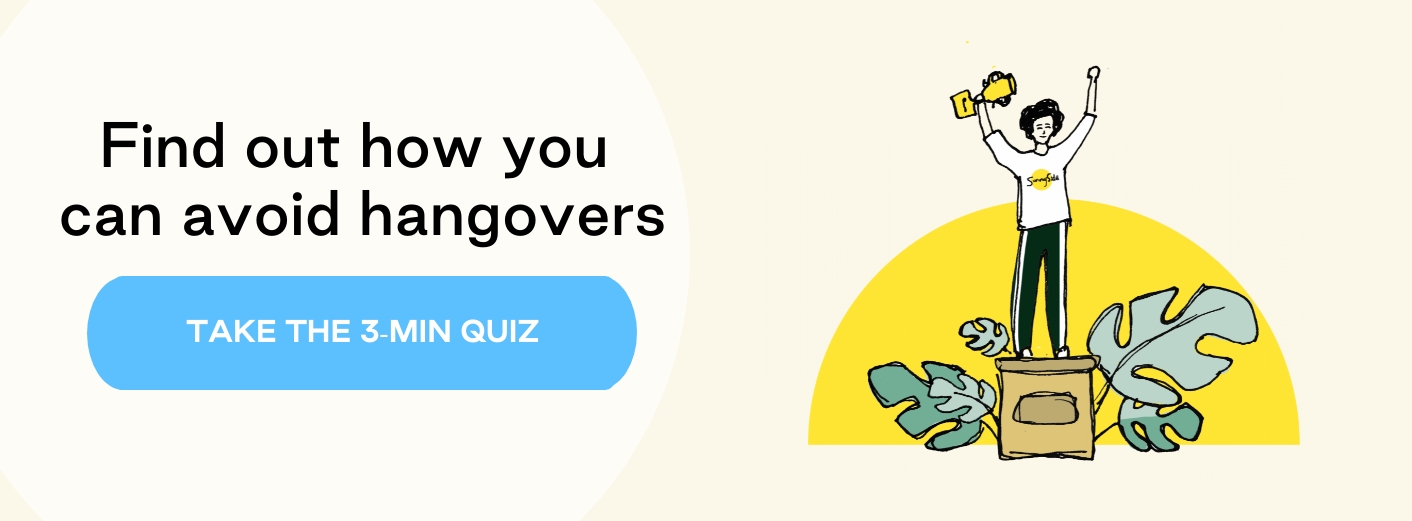
Why Your Hangover Might Feel Worse at Times
Research studies have also investigated different factors and how they impact the severity of your hangover.
Everyone responds to alcohol differently. Thus, some of these factors may have a huge impact on your drinking outcomes, while others don’t.
The following are some reasons why your hangovers might be bad:
1. Lack of sleep
Drinking alcohol can reduce your sleep quality and duration. While alcohol may help you reach dreamland faster, its sleep-inducing effects quickly wear off during the night, leading to poorer and fragmented sleep [5].
Unfortunately, a lack of proper sleep can lead to more severe hangover symptoms by increasing fatigue and irritability and reducing focus.
2. Lack of hydration
Alcohol acts as a diuretic, which can cause you to pass urine more often than usual [6]. Hence, you may be more susceptible to dehydration during or after an episode of drinking, which involves symptoms like dizziness, headache, tiredness, and confusion.
And, of course, hydrating with plain water isn’t a priority when you’re having fun—so forgetting to hydrate while drinking may also contribute to your risk of dehydration.
3. Drinking on an empty stomach
Drinking on an empty stomach usually means the alcohol passes more quickly into your bloodstream, increasing the risk of a (severe) hangover.
Most of the alcohol you consume is absorbed into your body via the small intestine. Hence, having some food or snacks before drinking keeps the alcohol in your stomach for longer and slows down its absorption into your body.
4. Having a smoke
Some research has shown that tobacco smoking may be related to hangover severity, though this may be more applicable to heavy drinkers [7].
Smoking leads to the accumulation of chemical compounds in your body, which may cause you to feel tired, nauseous, weaker, or less focused the following day.
5. Drinking too much or too fast
Having more alcohol than what’s usual for you increases the chances of you nursing a hangover the next morning. And logically speaking, the more you drink compared to your usual intake, the more dreadful your symptoms will be the morning after [8].
Binge drinking, which is the consumption of excessive alcohol at one time, can also significantly increase your chances of experiencing a hangover. That’s because our bodies metabolize around one standard drink per hour. Having more drinks during that timeframe could increase the likelihood of feeling tipsy and getting a hangover the following morning.
6. Drinking in a bad mood
Alcohol is sometimes used to remedy feelings of stress and anxiety. It’s a go-to stress-buster for many, but this can be harmful.
Some research has revealed that a poorer mood (feelings of anxiety, stress, or depression) is associated with greater hangover severity. Avoidant coping mechanisms (trying to deny, minimize, or avoid dealing with stressful situations) may also contribute to more severe hangovers [9].
Researchers propose that poor mood and unhealthy coping mechanisms may encourage risky drinking choices, leading to undesirable outcomes like a terrible hangover [9].
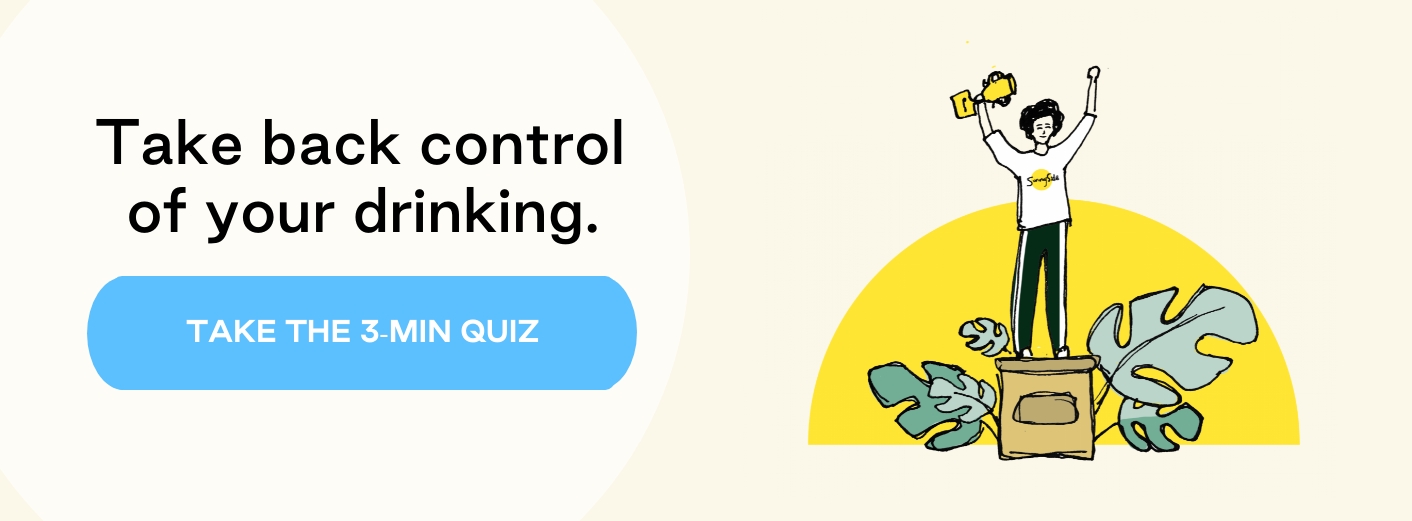

How Does the Type of Alcohol Influence the Severity of a Hangover?
Logically speaking, drinking alcoholic beverages with a higher alcohol content is more likely to lead to a hangover than those with a lower ABV.
But other than alcohol, scientists suspect other culprits in booze may also affect hangover severity. And they’re none other than congeners. Congeners refer to all the other substances, other than ethanol, that are produced during the fermentation and distillation of alcoholic drinks.
These substances aren’t all nasty; they help add some flavor and color to your favorite tipples. However, the presence of congeners in alcoholic beverages may contribute to the development of hangovers.
Some research has suggested that alcoholic drinks with more congeners are more likely to lead to a hangover, and at the same time, the severity of these hangovers may be more pronounced. Darker-colored drinks generally have a higher congener content [10].
The following are examples of drinks and their estimated congener content [10].
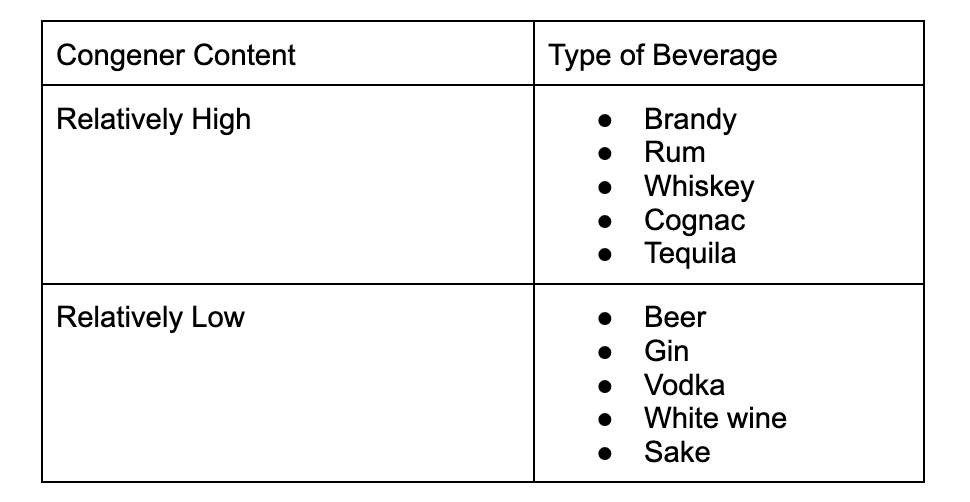

Apart from congeners, some studies have also shown that wine sulfites are associated with an increased risk of headaches in people susceptible to wine-induced headaches. However, other evidence contradicts these findings, further noting that sulfites are found in many other everyday food items that don’t trigger headaches [16].
Some people also report that sugary alcoholic drinks tend to give them a worse hangover. Nonetheless, this may be more of a case of over-imbibing since sugar drinks taste delicious and are easier to drink.
Hangovers in General: What are the Symptoms of a Hangover?
Hangovers present differently from person to person—which explains why you’re hit by a myriad of horrible symptoms the morning after, while your drinking partner simply gets away with darker under-eyes.
These are some common symptoms of a hangover:
1. Hangover nausea, vomiting, or stomach pain
Certain types of alcoholic beverages tend to stimulate the production of stomach acid or slow down gastric motility [11]. This irritates the lining of your stomach and can lead to various digestive issues, including nausea, vomiting, stomach discomfort, and heartburn.
Vomiting may also be one of your body’s defense responses to remove excess toxins from alcohol intake.
2. Hangover headaches and sensitivity
Because alcohol is a diuretic, this can lead to mild dehydration, which essentially contributes to the development of a headache. Another proposed mechanism involves the vasodilatory effects of alcohol, as alcohol can widen the blood vessels in certain areas of the brain, triggering a headache [12].
Alcohol intake may also be a trigger for a migraine attack. Thus, you may be more vulnerable to migraine-like hangover symptoms after a drinking session [13]. Sensitivity to light and sound may also accompany a hangover migraine.
3. Hangover dizziness
Since alcohol may contribute to dehydration, this can, in turn, lead to dizziness.
Alcohol may also reduce your blood sugar levels, leading to hypoglycemia, a condition where your blood sugar is lower than normal [14]. Low blood sugar levels may lead to physical symptoms such as dizziness and confusion. Nonetheless, this occurrence is much rarer in people who don’t have diabetes.
4. Hangover tiredness, fatigue, and poor sleep
Since alcohol may bring about low blood sugar levels, this may also lead to feelings of physical tiredness and fatigue.
And while alcohol may increase sleepiness momentarily, these sedative effects tend to disappear quickly. Hence, those who drink before bed may wake up more in the middle of the night and have trouble staying asleep. In this sense, alcohol can reduce your sleep quality and duration [15].
5. Hangover anxiety or “sense of doom”
Hangover anxiety, also dubbed “hangxiety,” describes the feelings of dread, guilt, or doom during a hangover.
As your body recovers from a wild night of drinking, it is pushed into a state of psychological stress. You may feel restless, jittery, anxious, or stressed during this time. Plus, uncertainty or worry about what you said or did the previous night can add to these undesirable emotions.
Wine Hangovers:
What are common symptoms of a wine hangover?
The symptoms of a wine hangover are similar to those you’d expect from a hangover from alcohol, including headaches, fatigue, nausea, and trouble sleeping.
Wine hangover symptoms are generally not as hard-hitting as those you may experience after downing dark liquors like bourbon or rum. But they may still be enough to lead to poorer performance, reduced focus, and a dreadful feeling of malaise—or like you’re coming down with a cold—the next day.
Why does wine typically result in these symptoms?
Wine contains both congeners and alcohol, both of which may cause you to feel rundown the next day. The greater levels of flavonoid compounds and tannins present in wine are also thought to contribute to these symptoms, especially hangover headaches and migraine attacks [16].
Interestingly, some research has noted that certain people typically develop headaches shortly after drinking red wine but not white wine. Researchers suggest that this happens because red wine (but not white wine) can increase the levels of serotonin and histamine in your body, triggering headaches in susceptible people [17].
There is also mixed evidence about the role of sulfites in wine. While some research shows that sulfites may increase the risk of headaches in people vulnerable to wine-induced headaches, other evidence states that organic and low-sulfite wines may not make a difference regarding hangover symptoms and severity [16].
How can I reduce the effects of a wine hangover?
One practical way to reduce these effects is to opt for white or clearer wines over darker red wines. White wines contain near to zero congeners, so they’re less likely to result in terrible hangover symptoms.



Beer Hangovers:
What are common symptoms of a beer hangover?
Beers can lead to typical hangover symptoms you’d notice from consuming other types of alcohol, including nausea, headaches, and poorer focus the following day.
Why does beer typically result in these symptoms?
Beers may cause hangovers due to the alcohol you consume when drinking beer. That said, beers generally contain a much lower ABV than other alcoholic drinks. Beers also contain fewer congeners than darker-colored alcohols like rum, so your hangover symptoms are less likely driven by the congeners in beer.
A few studies have suggested that the carbonation and bubbles in beer can increase your blood alcohol levels quicker, presumably increasing your hangover risk or severity [18]. Carbonated drinks like beer may also cause you to feel more bloated.
How can I reduce the effects of a beer hangover?
Lower-alcohol or no-alcohol beers offer a great way to enjoy the flavors of beer without risking a pounding headache the morning after. It’s also best to avoid mixing beer with hard liquors, as the carbonation in bubbly cocktails may speed up alcohol absorption.
Of course, be mindful of how many cans you chug. It can be easy to over-imbibe on beer, especially when having fun and participating in drinking games like beer pong.
Whiskey Hangovers
What are common symptoms of a whiskey hangover?
Darker-hued, high-congener alcohols like whiskey are notorious for causing more severe hangover symptoms than clearer liquors. Some hangover symptoms you may experience from drinking whiskey include headaches, nausea, vomiting, decreased appetite, and problems with memory.
Why does whiskey typically result in these symptoms?
Ethanol is the main component of all alcoholic beverages, including whiskey, and the number one culprit guilty of causing hangovers.
Apart from that, the congener content of whiskey is thought to be another primary reason this alcohol may lead to severe hangover symptoms. Beverages like whiskeys and brandys with a higher concentration of methanol congeners are therefore more frequently associated with hangovers [17].
That said, different whiskeys (bourbon, brandy, American, Canadian, and Scotch) contain significantly different amounts of congeners. For instance, bourbon packs around three times more congeners than Canadian whiskey and, thus, may put you at a higher risk of a severe hangover [19].
How can I reduce the effects of a whiskey hangover?
Avoid mixing whiskey with carbonated mixers or fizzy drinks. This could accelerate the rate of alcohol absorption into your bloodstream. And if possible, try to swap out whiskey for a lighter-hued liquor, like gin or vodka. These clear liquors tend to have a lower congener content.
Rum Hangovers:
What are common symptoms of a rum hangover?
The symptoms of a rum hangover are similar to that caused by other types of alcohol. Possible symptoms include headaches, fatigue, nausea, vomiting, sleep disturbances, changes in mood, and shakiness.
Why does rum typically result in these symptoms?
The alcohol in rum, as with any other alcoholic drink, is responsible for driving changes in your body that cause hangover symptoms.
While rum has a relatively lower amount of methanol congeners, it contains a greater concentration of the congener 1-propanol, often 30 times more than clear liquors like vodka. This lands dark rum in the high-congener category, which may be best avoided if you wish to prevent the morning-after haze.
How can I reduce the effects of a rum hangover?
Having light rum instead of dark rum may lower your risk of a hangover. Mixing rum with other liquors or carbonated drinks could also contribute to your risk of a hangover. But ultimately, the amount of rum you drink plays a major role in determining your odds of getting a hangover. On that note, being mindful of how much you drink is key to preventing a hangover.
Vodka Hangovers:
What are common symptoms of a vodka hangover?
Vodka can lead to the typical symptoms of a hangover, such as nausea, vomiting, headaches, tiredness, and poorer sleep.
Why does vodka typically result in these symptoms?
Like other alcoholic drinks, the alcohol in vodka is the main cause of hangover symptoms.
This flavorless, odorless, and colorless liquor contains much lower concentrations of congeners and, sometimes, even none. Since congeners can increase the intensity of your hangover, lighter-hued and clear liquors like vodka may be less frequently associated with hangover symptoms [20].
Of course, this truly depends on how much you drink, as over-imbibing on any alcoholic beverage still puts you at risk of a hangover.
How to help reduce the effects of a vodka hangover?
Having vodka-based cocktails rather than vodka shots may help reduce your overall alcohol intake during a drinking session. Whether you’re going for shots or cocktails, alternating each drink with something non-alcoholic—preferably plain water—can also help you pace your drinking.
Gin Hangovers:
What are common symptoms of a gin hangover?
Too much gin can lead to common hangover symptoms, such as fatigue, nausea, vomiting, headaches, thirst, and mood disturbances.
Why does gin typically result in these symptoms?
Since gin is also relatively low in congeners, the driving cause behind your hangover would be the alcohol present in gin.
How can I reduce the effects of a gin hangover?
Gin typically contains an AVB of around 40%, so having straight gin shots could take you past your threshold faster than having gin-based cocktails. Because of this, it’s generally better to opt for mixed drinks like gin and tonic instead of shots. Also, try to have a filling meal before hitting the bar, and be sure to hydrate well with water during your drinking session.
Tequila Hangovers:
What are common symptoms of a tequila hangover?
Drinking too much tequila may lead to the typical symptoms of a hangover, such as fatigue, shakiness, headache, nausea, vomiting, and sensitivity to light or sound.
Why does tequila typically result in these symptoms?
Tequila is high in alcohol, the main culprit behind hangovers. Other than its alcohol content, the congeners present in tequila may also contribute to the intensity of your hangover. However, the concentration of congeners in tequila varies from brand to brand.
How to help reduce the effects of a tequila hangover?
Opting for tequila-based mixed drinks instead of straight shots may help you consume less alcohol during the drinking session. Before kicking off the night, ensure you’ve filled your stomach. And whenever possible, alternate between tequila and non-alcoholic beverages to pace yourself better throughout the night.
How Long Do Hangovers Usually Last?
Hangovers generally resolve within 24 hours [19]. There are some reports that they may even last up to three days.
How much you drink isn’t directly correlated to the hangover duration. That said, the more you drink than what’s usual, the more likely you are to experience a severe hangover, and severe hangovers tend to last longer. A lack of sleep and not hydrating well enough can also worsen and prolong the dreaded symptoms of a hangover.
Why Does a Hangover From Clear Liquor Feel Less Intense Than When Mixing Alcohol?
Science has shown that the presence of more congeners can increase hangover severity, while a lower congener content is much less likely to do so [21]. Clear liquors are lower in congeners and hence, cause hangovers that don’t feel as intense.
When mixing these clear liquors with darker-toned liquors like whiskey, dark rum, or brandy, the hangover symptoms you experience could be more severe. Such liquors contain a significantly higher amount of congeners than lighter-colored liquors. Thus, they can increase the intensity of your hangover symptoms [21].
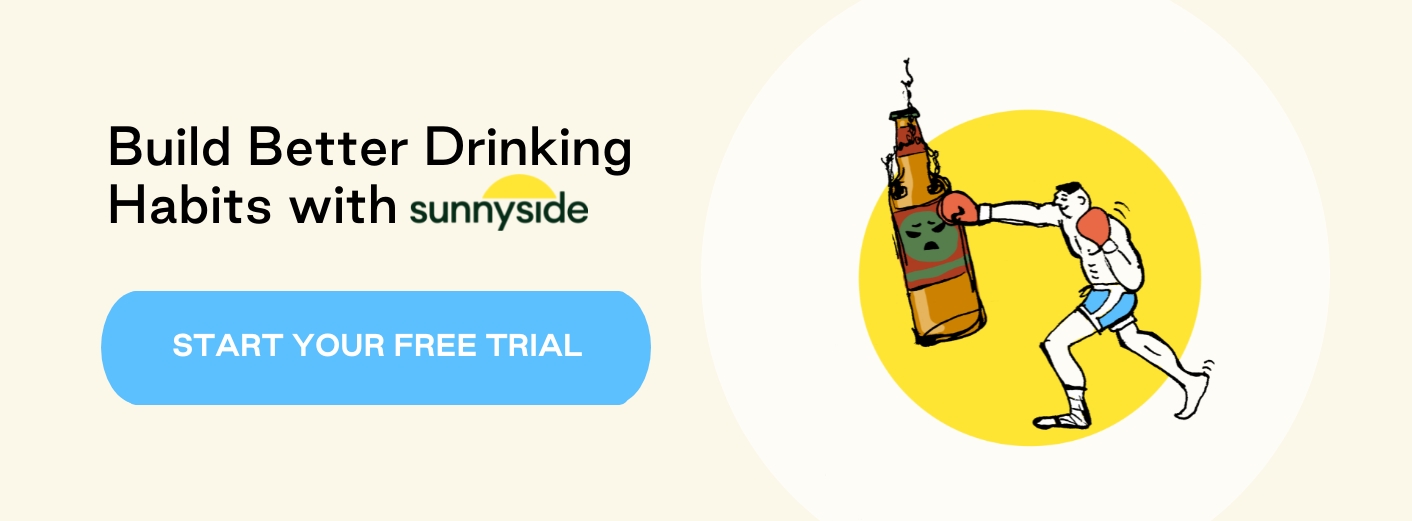

Part 2: Hangover Cures and Remedies to Help You Get Through Your Day
When the after-morning dread hits, there’s probably nothing you’d want more than a quick-and-easy cure to finally feel like your usual self again. However, there is no surefire way to immediately “cure” a hangover.
Luckily, there are things you can do to remedy some of your symptoms and hopefully get yourself through a manic Monday. Let’s explore them below!
Foods That May Help With Hangovers
The following are some hangover-friendly foods that may help alleviate some of your symptoms.
- Eggs: Eggs may be good for hangover symptoms as they may assist in breaking down acetaldehyde, a toxic compound that can contribute to hangover symptoms. Since eggs are rich in cysteine, it may aid in increasing your body’s store of glutathione, which your body needs to eliminate toxic byproduct compounds like acetaldehyde [22].
- Watermelon: Watermelons are rich in water and important electrolytes, which may help replenish your body’s fluids if you’ve overindulged the night before.
- Banana: Bananas are rich in potassium, an essential electrolyte that helps regulate your body’s fluid balance. Plus, these super-fruits are packed with fiber that may aid in combating digestive symptoms related to a hangover, such as heartburn.
- Nuts: Nuts are rich in nutrients like magnesium and selenium. Magnesium intake may help soften the blow of alcohol on sleep, memory, and energy. Meanwhile, selenium may serve as an anti-inflammatory agent and mood booster [23].
Currently, more scientific evidence is still needed to prove the efficacy of these foods in combating hangover symptoms.
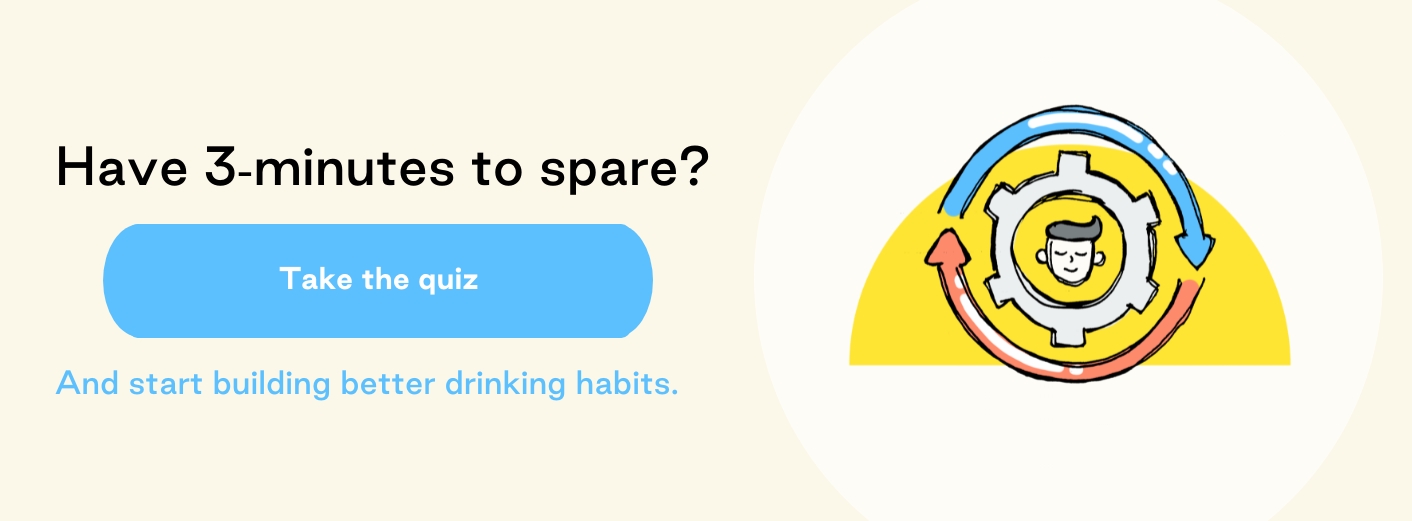


Drinks That May Help With Hangovers
One of the most common things people do is reach for a cup of coffee to remedy the morning-after blues.
Caffeine affects people differently, but in many cases, coffee can slow down rehydration, increase your blood pressure, and narrow your blood vessels. This may worsen your headache or leave you even more dehydrated, anxious, and jittery than before.
Here are some better options to try when nursing a hangover:
- Plain water: Plain water is your best friend if you’ve overindulged the night before. Hydrating sufficiently with water is the best way to flush out toxins and replenish any fluids lost, since alcohol diminishes fluids by making you pee more. Lemon water is also a popular hangover remedy you can try. It is a good source of electrolytes that can help restore your body’s fluids.
- Sports drinks: Sports drinks like Gatorade, Pedialyte, and other non-fizzy sports drinks are rich in minerals and electrolytes, such as potassium, magnesium, and sodium. These electrolytes help to regulate your body’s fluid levels. These drinks aren’t the same as energy drinks such as Red Bull, which may not be the best option during a hangover due to their caffeine content.
- Coconut water: An electrolyte-rich beverage like coconut water is one of the best ways to step up your hydration game after a night of drinking.
Vitamins and Supplements to Help With Hangovers
Excessive alcohol consumption can lead to the depletion of essential minerals and nutrients, such as magnesium and B vitamins. Thus, consuming certain dietary supplements may help with reducing the effects of alcohol on your body.
- Vitamin B: One study found that vitamin B6 supplementation significantly reduced the number of hangover symptoms that participants reported [24].
- Vitamin C: Vitamin C’s antioxidant properties may help support your body’s natural defenses, but there is a lack of evidence on its direct benefits on hangover symptoms.
- Omega Complex: Supplements containing healthy fatty acids, such as omega-3s, may help combat hangover symptoms. For instance, one study found that krill oil, which is rich in omega-3 fatty acids, helped alleviate hangover symptoms like nausea and thirst, possibly due to its antioxidant properties [25].
- Magnesium: Mixing a magnesium powder with water can help replenish your magnesium stores and aid with regulating your body’s fluids.
- Multi-ingredient complexes: You may also opt for supplements with multi-ingredient blends, such as the Cheer Restore Pills. These capsules consist of dihydromyricetin (DHM), milk thistle, and L-cysteine. According to the brand, taking them after having alcohol may aid in supporting your liver and help you feel better the day after drinking.
Currently, more research is still needed to confirm the acute effects of dietary supplementation on hangover symptoms, as published evidence shows mixed results. If you’re unsure, consulting your healthcare provider would be the wisest step to take.
Other Natural Solutions to Deal With a Hangover
Here are some other natural ways to manage a hangover:
- Get enough sleep: Avoid coffee before bed, optimize the environment and temperature of your bedroom, and put away your devices an hour before bed. Getting good sleep is crucial to minimizing hangover symptoms and functioning well the next day.
- Have a nutritious breakfast: A nutritious meal may help nudge your blood sugar levels back into the normal range, especially if you’ve had too much to drink the night before. Opt for foods like crackers, bananas, eggs, and toast if the hangover nausea has kicked in.
- Take a cold shower: A cold shower in the morning may help jolt you awake temporarily but won’t eliminate your hangover symptoms.
- Sweating it out: You can’t actually “sweat out” your hangover, but some people find that exercise helps to boost their mood and reduce their post-drinking anxiety. If you choose to work out after drinking, be very sure to hydrate well.
- Breathwork: Potential benefits of breathwork include balancing blood pressure, elevating mood, improving sleep, and enhancing mental focus, all of which may be useful while you’re hungover [26]. Othership.us is a breathwork app that can get you started.
- Avoid more alcohol: The hair of the dog refers to drinking more alcohol to relieve hangover symptoms, which some people have said temporarily helps. However, drinking more alcohol won’t help in the grand scheme of things. Your hangover will return once you stop and may even be more severe than before.




Part 3: How to Avoid and Prevent Hangovers Entirely (While Still Enjoying Drinking)
The only surefire way to prevent a hangover is to avoid drinking. Giving up alcohol almost always comes with a slew of health benefits, including complete immunity from the after-morning haze.
But another worthy contender is a practice called mindful drinking.
How to Prevent Hangovers With Mindful Drinking
Mindful drinking is the conscious and attentive approach to drinking. It offers the middle ground, where you can work on improving your drinking habits and decisions without having to give up the buzz of alcohol.
Mindful drinking is one of the best ways to prevent a hangover, and here are a few ways you can put it into practice.
Track your drinking
It can be easy to lose track of how much you drink, especially if you’re having a blast. So set a limit beforehand and make it a point to track the number of drinks you’ve had. You can do this with the help of an app like Sunnyside.
If you need an extra hand, the Sunnyside app is a text message-based mindful drinking app that helps remind you to track your daily intake. Through the app, you can text a number or an emoji to log your daily intake as well as gain insight into how well you’re pacing your drinking throughout the week.
Avoid binge drinking
The CDC defines binge drinking as having 5 or more standard drinks on a single occasion for men or consuming 4 or more standard drinks on a single occasion for women.
Binge drinking can increase your risk of a hangover and may lead to adverse health consequences in the long run.
Here are some tips when dealing with the pressure to binge drink:-
- Let your friends or drinking partner know you’re trying to cut back.
- Limit your time with certain groups of people who encourage you to binge drink.
- Don’t hesitate to give a firm “no” when prompted to drink more.
- Change the conversation topic.
- When prompted to drink, give a valid excuse (such as needing to wake up for work the next day).
Going for lower-ABV drinks and mixed drinks instead of shots may also reduce your overall alcohol intake during the night.
Alternate with water and non-alcoholic drinks
One of the best ways to pace yourself while drinking is to alternate your alcoholic drinks with non-alcoholic ones. The best and healthiest choice is, of course, water.
Alternatively, you could opt for non-alcoholic beverages. Mocktails and fresh juices are great for those feeling a little fancier. We’ve also compiled a list of the best non-alcoholic and low-alcohol brands for those looking for a wine, spirit, or beer replacement that offers a similar buzz.
Fill your stomach before drinking
Having a filling meal helps slow the absorption rate of alcohol into your bloodstream.
Foods rich in fibers, carbs, or mineral electrolytes help keep you full for longer, maintain blood sugar levels while you drink, and regulate your body’s fluid stores. Oats, eggs, fruits, vegetables, and sweet potatoes are all great examples.
Slow down drinking before sleeping
It’s best to stop drinking at least 4 hours before bedtime to reduce your risk of sleep disruptions due to alcohol. Since alcohol is metabolized at around one standard glass per hour, you will need preferably 4-6 hours of buffer time between your final drink and when you finally hit the sheets [27].
To slow down your drinking, go for smaller-sized or lower-strength drinks, sip on cocktails instead of downing shots, and set a reminder that goes off when it’s time to stop.
Avoid mixing other substances
Tobacco smoking on drinking days can increase the severity of your hangover [7].
Apart from that, using alcohol together with cannabis may lead to even poorer memory, focus, and cognitive function. Additionally, you may also notice poorer judgment and an increased likelihood of engaging in risky behaviors, such as high-risk drinking, when using alcohol and cannabis concurrently [28].
Stick to clear liquors
Clear liquors like gin and vodka have a lower congener content, while darker liquors such as brandy and dark rum have a higher concentration. Drinkers with a greater concentration of congeners tend to cause more severe hangovers, so try to stick to lighter-hued alcohols when drinking.
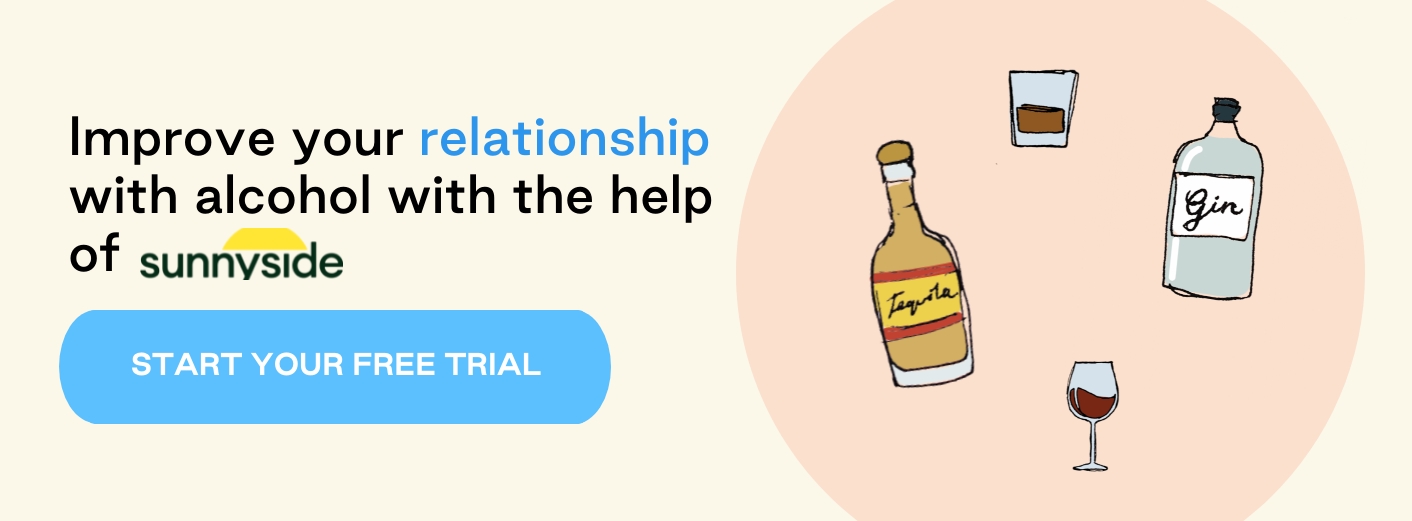

Part 4: Consequences and Long-Term Effects of Hangovers
Hangovers can negatively impact your physical health, mental wellness, and relationships in the long run.
Physical and Mental Wellness
The following are some long-term consequences of hangovers and over-imbibing on your wellness:
Brain fog
Long-term excessive alcohol intake can impair your cognitive function and lead to poorer focus and a shorter attention span, commonly called “brain fog.”
You may notice that you struggle with focusing on your tasks, keeping up with conversations, or receiving and processing information. Additionally, you may constantly feel tired, encounter problems with memory, or have trouble organizing your thoughts [29].
Sleep problems
Frequently overindulging in alcohol can cause a reduction in your sleep quality.
Studies have shown that regular heavy drinking can make it gradually harder to fall asleep, disrupt or decrease REM sleep (an essential stage for mental restoration), and reduce your overall sleep time. Hence, alcohol can lead to sleeping problems like insomnia [30].
Reduced Immune Function
Having too much alcohol, in the long run, may lead to significant changes in your immune system and weaken your body’s natural defenses, putting you at a higher risk of bacterial and viral infections [31].
Other than that, alcohol can trigger inflammation and destroy the healthy balance of microorganisms in your gut that helps to maintain a healthy immune system. It may also alter your body’s defenses against different cancers and slow recovery from infectious diseases or physical trauma [32].
Poorer Relationships and Work Performance
Regularly wrestling with hangovers may leave you underperforming at work and lagging behind your career goals.
Drinking too much alcohol may lead to work or career problems due to the following reasons:
- Being unable to focus on tasks and complete them on time
- Constantly taking days off work due to health problems
- Poorer relationships with co-workers, clients, or customers
- Poorer decision-making and judgment
- Being slower at picking up or learning new information
Relationships with family, friends or a partner may also be strained due to unmanaged drinking habits. Financial issues, poorer mood, and too much time spent on drinking may cause conflicts and lead to negative outcomes in your relationships.
In any case, it’s best to seek professional help if you feel that your drinking habits may be taking a toll on your work and relationships.



Part 5: A doctor’s take on hangovers: how they hurt your mind and body in the long run
Hangovers can also have some long-term consequences that are often overlooked. We spoke with Dr. Hrishikesh Belani to learn more about the additional implications of frequent hangovers.
Alcohol hangover – or veisalgia– is characterized by headache, tremulousness, nausea, diarrhea, and fatigue combined with decreased occupational, cognitive, or visual–spatial skill performance.
The cause of veisalgia is not only due to dehydration and the buildup of the products of breaking down alcohol, but also due to hormonal surges, inflammation, and acid/base changes.
Veisalgia can impair depth perception and slow thinking. This can be detrimental when operating heavy machinery, or completing focused tasks in the workplace.
Veisalgia can result in circulatory changes as well. This includes increased heart rate and blood pressure. In certain patients, this could lead to abnormal heart rhythms, or arrhythmias, which can be life-threatening.
You should seek emergent medical care for concerning symptoms that might include: dizziness or fainting, chest pain, trouble breathing, confusion or disorientation.
Hangovers also result in dehydration and for most healthy individuals, this is generally very uncomfortable. In patients with chronic diseases – such as (but not limited to) liver disease, kidney disease, diabetes or heart failure, dehydration can lead to changes in electrolyte levels, changes in the pH of the blood and drops in blood pressure.
Ultimately, my main pro tips are to stay hydrated, learn your limitations, and moderate.




Part 6: Testimonials from real Sunnyside members who have reduced their hangovers
Drinking more mindfully is one of the best ways (aside from not drinking at all) to avoid hangovers. This way, you’re not pressured to quit drinking entirely, but you’re just maintaining awareness around your consumption. Essentially, mindful drinking means being smarter about how you drink.
Here’s what some Sunnyside members had to say about their experience using Sunnyside and how they’ve prevented hangovers:
It’s been sooo helpful for me. Before this I thought I could only binge drink or be sober but I’m like a month in and have met so many of my goals and haven’t had a hangover since i started, while still enjoying alcohol.
I LOVED Cutback coach. 🙂 It really helped me slow it down, be aware, and I haven’t had a hangover or embarrassed myself since I started this.
It helped me learn my limits, and to drink responsibly. Thanks A Bunch!
I am loving the results!! no hangovers since i started! thank you so much!
Thank you for your encouragement. I am feeling really good about my progress building mindfulness around my drinking. Since I have started using the app, I haven’t had a hangover!!
I’m waking up each morning with almost no hangovers or feeling generally shitty. This system is really working for me! I feel remarkably better, holistically. I’m so grateful to have found cc. Honestly, I needed help creating healthier boundaries.
I’d like to thank you for being a major reason I have completed the best summer in years. As a teacher/coach, I have ample down time and opportunities to consume alcohol easily during the summer months. This summer I wanted something different for my life. Instead of mindlessly drinking, feeling ashamed, and repeating- I joined Sunnyside. This summer I have enjoyed a few cold ones, but on my terms more than not.
I have had to experience only one hangover due to my choices, thus I have not wasted multiple days, as I have in the past. Now, I head into another school year, with more confidence and control. I still have a ways to go, better habits to cement. I am feeling like I could do so.
16 days in a row without a hangover. Feeling clear headed every single morning is worth looking forward to.
By moderating their drinking and practicing mindful drinking, tens of thousands of Sunnyside members are avoiding and overcoming hangovers, and living more fulfilling and healthy lives!
Conclusion
A hangover is a tell-tale sign that you’ve had more than your body can handle. While there isn’t any scientifically-proven hangover cure, there are many effective ways to prevent history from repeating itself.
The most surefire to prevent a hangover is to stop drinking. But if you’re not ready to give up alcohol for good, mindful drinking is the next-best approach. With mindful drinking, you’ll learn to be conscious of how much you drink and other alcohol-related decisions you make, which helps you develop a healthier relationship with alcohol.
Sunnyside is a mindful drinking app where you can track your daily drinking patterns, commit to actionable weekly plans, talk to real-life coaches, and receive daily tips and accountability texts. The app is designed to help you sustainably reduce your alcohol intake without any pressure to quit.
Ready to join thousands of other Sunnyside members? Sign up for our 15-day free trial right here!



References
[1] https://www.niaaa.nih.gov/publications/brochures-and-fact-sheets/hangovers
[2] https://www.ncbi.nlm.nih.gov/pmc/articles/PMC7141232/
[4] https://www.ncbi.nlm.nih.gov/pmc/articles/PMC7692803/
[6] https://academic.oup.com/alcalc/article/45/4/366/155478
[7] https://www.ncbi.nlm.nih.gov/pmc/articles/PMC3517263/
[10] https://academic.oup.com/alcalc/article/43/2/124/122754
[11] https://pubmed.ncbi.nlm.nih.gov/27527893/
[12] https://headachejournal.onlinelibrary.wiley.com/doi/full/10.1111/j.1526-4610.2008.01317.x
[13] https://www.ncbi.nlm.nih.gov/pmc/articles/PMC4064176/
[14] https://www.ncbi.nlm.nih.gov/pmc/articles/PMC6125008/
[15] https://www.ncbi.nlm.nih.gov/pmc/articles/PMC4666864/
[16] https://headachejournal.onlinelibrary.wiley.com/doi/10.1111/head.12365
[17] https://www.ncbi.nlm.nih.gov/pmc/articles/PMC6761819/
[18] https://www.sciencedirect.com/science/article/abs/pii/S1752928X06003003
[19] https://www.ncbi.nlm.nih.gov/pmc/articles/PMC3827719/
[20] https://www.ncbi.nlm.nih.gov/pmc/articles/PMC3674844/
[21] https://pubmed.ncbi.nlm.nih.gov/20712591/
[22] https://www.nature.com/articles/s41598-021-92676-0
[24] https://www.ncbi.nlm.nih.gov/pmc/articles/PMC6780234/
[25] https://www.sciencedirect.com/science/article/pii/S1756464622002122
[26] https://www.webmd.com/balance/what-is-breathwork
[27] https://www.ncbi.nlm.nih.gov/pmc/articles/PMC2775419/
[29] https://www.frontiersin.org/articles/10.3389/fpsyt.2014.00078/full
[30] https://neuro.psychiatryonline.org/doi/10.1176/appi.neuropsych.16110307
